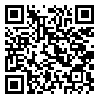دوره 6، شماره 1 - ( 10-1398 )
جلد 6 شماره 1 صفحات 64-55 |
برگشت به فهرست نسخه ها
Download citation:
BibTeX | RIS | EndNote | Medlars | ProCite | Reference Manager | RefWorks
Send citation to:



BibTeX | RIS | EndNote | Medlars | ProCite | Reference Manager | RefWorks
Send citation to:
Shoghi M, Nazarshodeh S, Borimnejad L. Knowledge and Attitude of Nurses Working in a Neonatal Intensive Care Unit on the Use of Human Donor Milk. JCCNC 2020; 6 (1) :55-64
URL: http://jccnc.iums.ac.ir/article-1-250-fa.html
URL: http://jccnc.iums.ac.ir/article-1-250-fa.html
Knowledge and Attitude of Nurses Working in a Neonatal Intensive Care Unit on the Use of Human Donor Milk. نشریه مراقبت پرستاری مددجو محور. 1398; 6 (1) :55-64
چکیده: (3515 مشاهده)
Background: Donor milk is a newly emerging phenomenon in Iran and its banks are currently operating at a limited level. Nurses’ knowledge and attitudes toward this issue play a key role in the adoption of human donor milk by families. This study aimed to determine the knowledge and attitude of nurses working in Neonatal Intensive Care Units (NICUs) regarding the use of human donor milk and its advantages and disadvantages.
Methods: This research was a descriptive cross-sectional study. One hundred nurses working in the NICUs of three hospitals affiliated to Iran University of Medical Sciences were recruited by census method. The study data were collected by “nurses’ questionnaire towards donor milk and the pros and cons” and “attitude of nurses towards donor milk”. The obtained data were analyzed by the independent t test and analysis of variance in SPSS V. 22.
Results: Most nurses had appropriate knowledge about donor milk. About 68% of them believed that human donor milk would reduce the growth rate of the baby, but 33% said that the formula milk was easier to find and less stressful than donor milk. Nurses did not express a positive attitude toward donor milk in most questions. Approximately 48% were opposed to receiving human donor milk. Forty-five percent of the nurses blamed its costs and investment as the strongest barriers toward consuming donor milk in their cities. Around 68% supported the establishment of a human milk bank in the area or city where they work and reside. The results also showed the knowledge (P=0.031), and attitude (P<0.00) of the nurses were significantly associated with their marital status.
Conclusion: The nurses had appropriate knowledge about human donor milk; however, in most cases, they lacked a favorable attitude toward it. It seems that cultural and religious issues might have played a role in this respect.
Methods: This research was a descriptive cross-sectional study. One hundred nurses working in the NICUs of three hospitals affiliated to Iran University of Medical Sciences were recruited by census method. The study data were collected by “nurses’ questionnaire towards donor milk and the pros and cons” and “attitude of nurses towards donor milk”. The obtained data were analyzed by the independent t test and analysis of variance in SPSS V. 22.
Results: Most nurses had appropriate knowledge about donor milk. About 68% of them believed that human donor milk would reduce the growth rate of the baby, but 33% said that the formula milk was easier to find and less stressful than donor milk. Nurses did not express a positive attitude toward donor milk in most questions. Approximately 48% were opposed to receiving human donor milk. Forty-five percent of the nurses blamed its costs and investment as the strongest barriers toward consuming donor milk in their cities. Around 68% supported the establishment of a human milk bank in the area or city where they work and reside. The results also showed the knowledge (P=0.031), and attitude (P<0.00) of the nurses were significantly associated with their marital status.
Conclusion: The nurses had appropriate knowledge about human donor milk; however, in most cases, they lacked a favorable attitude toward it. It seems that cultural and religious issues might have played a role in this respect.
| بازنشر اطلاعات | |
 |
این مقاله تحت شرایط Creative Commons Attribution-NonCommercial 4.0 International License قابل بازنشر است. |





